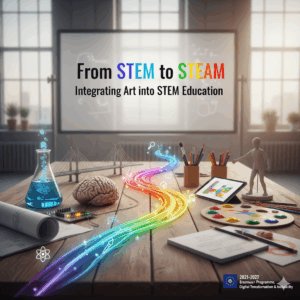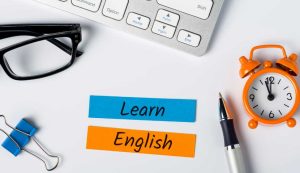
Digital Citizenship, Digital Media Literacy, and AI Tools in Education
Course Description
This course offers a comprehensive program for teachers and educators aimed at adapting to the educational environments and societies of the digital age. Covering digital citizenship, digital media literacy, and the use of AI tools in education, the course is structured within the framework of UNESCO, UN, and EU initiatives on these topics. It provides participants with knowledge on digital safety, ethics, and critical evaluation of media content, while teaching them how to implement AI tools through hands-on activities. Participants will gain the skills necessary to enhance students’ digital literacy in schools, raise them as safe and ethical individuals in the digital world, and personalize educational processes using AI tools. This program aims to take significant steps to support digital transformation and innovation in education.
Course Methodology
The course will be conducted through interactive and experiential methods, including collaborative learning, case studies, group work, and hands-on workshops. Icebreaker activities will allow participants to get to know each other and build trust, with an emphasis on group work and practical applications each day. Theoretical information will be presented through brief presentations, followed by practical experiences. Assessment will be based on the projects created and materials developed by participants. Feedback forms will be collected at the end of the course, and participants will receive Europass certificates and participation documents.
Course Objectives
- To equip participants with comprehensive knowledge and skills in digital citizenship, safety, and media literacy.
- To teach the applicability of AI tools in education.
- To provide pedagogical approaches necessary for cultivating students as safe and ethical individuals in the digital world.
- To empower teachers to raise awareness of digital media literacy in schools.
- To create personalized learning pathways through the use of AI in educational processes.
Learning Outcomes
- Participants will learn to integrate digital citizenship, media literacy, and AI tools into educational processes.
- Participants will be able to develop strategies that promote ethical behavior in digital environments.
- They will gain in-depth knowledge of how AI tools can be used in education.
- Participants will acquire competencies in analyzing media content, critical thinking, and imparting these skills to students.
- They will be able to apply innovative approaches in education by developing digital tools and AI-supported materials.
Tentative daily programme
Day 1: Digital Citizenship & Ethical Use of Technology
- Icebreaker Activity: Interactive introduction activity to build group dynamics.
- Introduction to Digital Citizenship: Online rights and responsibilities; opportunities and risks of the digital world within the framework of UNESCO digital literacy studies.
- Theoretical Input: Ethical and responsible behavior in digital environments; global perspectives based on UN reports on digital literacy and access.
- Practical Activity: Simulations on safe and ethical behavior in digital platforms.
- Group Work: Sharing experiences and discussing digital rights and responsibilities in educational contexts.
Day 2: Digital Safety, Privacy & Data Protection
- Warm-up Activity: Participants share real-life experiences related to online safety and privacy.
- Digital Safety & Privacy: Personal data protection, digital rights, and online safety referencing GDPR and UN digital rights studies.
- Theoretical Input: International regulations and their implications for schools and educators.
- Practical Workshop: Creating secure passwords, managing privacy settings, and recognizing online threats.
- Group Work: Developing school-based strategies to improve students’ digital safety awareness.
Day 3: Digital Media Literacy & Information Verification
- Warm-up Activity: Group discussion on information reliability in the digital age.
- Media Literacy Foundations: Critical evaluation of digital content based on UNESCO media literacy frameworks.
- Theoretical Input: Fake news, manipulation, and disinformation; EU Media Literacy Initiative and UN counter-disinformation efforts.
- Practical Activity: Case studies distinguishing real vs. fake news and analyzing digital media content.
- Group Work: Designing classroom strategies to combat misinformation and foster critical thinking.
Day 4: Digital Content Creation & Introduction to AI in Education
- Warm-up Activity: Discussion on digital content use in classrooms.
- Digital Content Creation: Educational use of videos, blogs, podcasts, and digital storytelling, aligned with UNESCO recommendations.
- Practical Workshop: Hands-on content production using digital tools.
- Introduction to AI in Education: Overview of AI tools, opportunities, and ethical considerations, referencing UNESCO’s AI in Education reports.
- Practical Demonstration: First hands-on experience with AI-supported educational tools.
Day 5: AI Tools for Personalized Learning, Assessment & Evaluation
- Warm-up Activity: Sharing experiences and expectations regarding AI in education.
- AI for Personalized Learning: Adapting AI tools to different learning styles and needs, based on UNESCO and EU future-of-education studies.
- Practical Workshop:
-
- Creating AI-supported lesson plans
- Assessing student performance using AI tools
- Providing personalized feedback
- Group Work: Planning AI integration strategies for participants’ own institutions.
- Evaluation & Certification: Course evaluation, participant feedback, Europass certificates, and participation documents.
- Closing Activity: Certificate ceremony and social networking activity.
At the End of the Course
- Participants will receive their certificates.
- Participants will provide a general evaluation of the course and complete the event survey.
- Participants will receive course materials, videos, photos, and PDF documents in both digital and print formats.
Follow-up and Support
After the course, participants will receive all course materials both digitally and in print. An email group will be created for idea exchange, and self-evaluation materials will be provided.
*Please note that course activities and content may vary depending on participants’ preferences and the instructor leading the session. Any changes to the course are at the discretion of the instructor. If there is a specific topic you would like to include in the course content, please let us know in advance.
Course Info
- Duration: 7 Days
- Location: All Location
- Cost: € 80-Day
- Certificate: Yes
- Prerequisites: No










